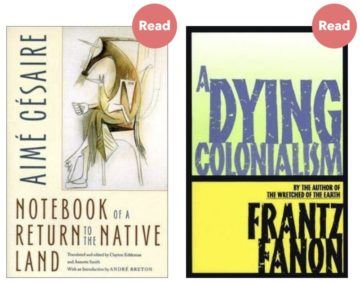Cal Flyn in Five Books:
 Postcolonial literature brings together writings from formerly colonised territories, allowing commonalities across disparate cultures to be identified and examined. Here, the University of Toronto academic Anjuli Fatima Raza Kolb recommends five key works that explore philosophical and political questions through allegory, personal reflection and powerful polemic.
Postcolonial literature brings together writings from formerly colonised territories, allowing commonalities across disparate cultures to be identified and examined. Here, the University of Toronto academic Anjuli Fatima Raza Kolb recommends five key works that explore philosophical and political questions through allegory, personal reflection and powerful polemic.
What is postcolonial literature and why should we read it?
There are two separate but connected fields that I’m drawing these postcolonial books from.
First, there’s the intuitive definition of postcolonial literature, which is basically just literary work produced in formerly colonised nations by the people who live there. Already you can tell that this is a complicated category – is Albert Camus a postcolonial writer because he was an Algerian Pied-Noir? His siting in Algeria is as important as his identification with the French canon. So ‘postcolonial writing’ crumbles at the slightest touch when we use geography and history in order to define it.
What’s more useful to me is thinking about postcolonialism not as a historical definition or geographic category, but as a method—an approach that is explicitly about the liberatory politics of oppressed peoples. So I’m going to talk today about books that I would put in both camps at once.
More here.
